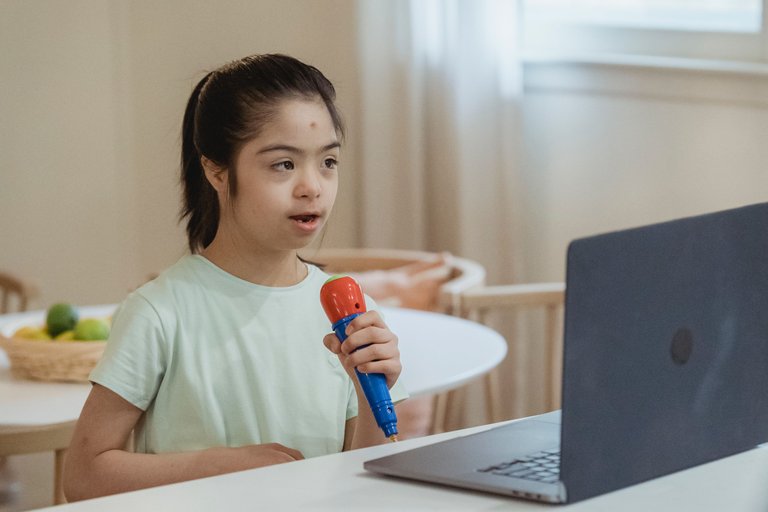Should Autism Be Considered An Illness?
There is much debate over whether or not autism should be considered an illness. On one side, there are those who argue that autism is a neurological disorder that should be treated with medication and therapy. On the other side, there are those who believe that autism is a different way of thinking that should not be viewed as an illness.
There is no right or wrong answer to this question. Ultimately, it is up to the individual to decide how they want to view autism. However, it is important to remember that autism is not a choice and it is not something that can be cured. With that said, there is nothing wrong with seeking treatment for autism if it is something that you or your child wants.
What is autism?
Autism is a developmental disorder that affects a person's ability to communicate and interact with others. It is a spectrum disorder, which means that it can range from mild to severe. People with autism may have difficulty socializing, may be nonverbal, and may be sensitive to changes in their environment. Autism is not a single condition, but rather a group of related conditions. It is believed to come from a combination of environmental and genetic factors. There is no cure for autism, but there are treatments that can help improve a person's symptoms.
The spectrum of autism
The autism spectrum is a range of neurodevelopmental disorders that are characterized by social, communication, and behavioral deficits. Autism spectrum disorders (ASD) can vary widely in severity, and symptoms can manifest in a variety of ways. Some people with ASD may be extremely withdrawn and unable to communicate, while others may be highly verbal and have difficulty with social interactions.
With recent advances in research, we are beginning to better understand the causes of ASD and how best to treat it. However, there is still much to learn about this complex condition. Hopefully, with continued research, we will one day be able to provide answers and help for all those affected by autism spectrum disorders.
The causes of autism
Autism spectrum disorder (ASD) is a complex neurodevelopmental disorder that affects a person’s ability to communicate and interact with others. ASD is also characterized by repetitive behaviors and difficulty with social interactions and communication.
The exact cause is still yet unknown, It is believed to be caused by a combination of genetic and environmental factors. Some thing it is linked to certain medical conditions, such as infection during pregnancy or exposure to certain chemicals. However, more research is needed to confirm this claims.
While the exact cause of ASD is unknown, there are several theories about what may contribute to the development of this disorder. It is important to remember that ASD is a complex disorder and that there is not one single cause. Rather, it is likely that multiple factors contribute to the development of ASD.
The many faces of autism
Autism is a complex neurological condition that affects people in many different ways. Some people with autism are highly verbal and have extraordinary abilities in art, music, or math. Others may be nonverbal and require significant support in daily living. Autism spectrum disorder (ASD) is a term used to describe the range of symptoms and abilities that people with autism can have.
While each person with autism is unique, there are some common symptoms that many people with ASD share. These can include difficulty with social interaction and communication, repetitive behaviors, and Sensory processing issues. People with ASD may also have different ways of learning, thinking, and problem-solving.
There is no cure for ASD, but there are many different treatments and interventions that can be effective in helping people with ASD to reach their full potential. With the right support, people with ASD.
Symptoms of autism
Autism is a neurodevelopmental disorder that affects a person's ability to socialize, communicate, and process information. People with autism often have difficulty with social interactions and communication. They may also have repetitive behaviors and interests.
Autism spectrum disorder (ASD) is the name for a group of disorders that include autism. ASD starts in early childhood and lasts a person's lifetime.
There is no one-size-fits-all autism diagnosis. The symptoms and severity of ASD can vary widely. Some people with ASD are highly functioning, while others may need significant support.
There are a number of different symptoms that can be associated with autism. Some people with autism may have all of these symptoms, while others may only have a few. The severity of the symptoms can also vary.
- Social interaction and communication difficulties
Early intervention for autism
Early intervention for autism is a highly effective way to improve the long-term outlook for children with the condition. Numerous studies have shown that early intervention can make a significant difference in the way children with autism develop and learn.
There are a variety of different early intervention approaches that can be used, and the best approach for each child may vary depending on the child’s individual needs. However, all early intervention programs share the goal of helping children with autism develop the skills they need to be successful in life.
If you are concerned that your child may have autism, it is important to seek professional help as soon as possible. Early intervention is most effective when it is started as soon as possible after a diagnosis is made.
How is autism treated?
There is no one-size-fits-all approach to treating autism. The best way to treat autism is to tailor interventions to the individual's specific needs. Intervention should focus on the individual's strengths and abilities, and should be based on the best available scientific evidence.
The most effective interventions for autism are those that are intensive, individualized, and delivered early in life. The earlier the intervention begins, the more effective it is likely to be. There is no cure for autism, but with early intervention and appropriate supports, many people with autism can live full and independent lives.
Epilogue
In conclusion, there is still much debate surrounding whether or not autism should be classified as an illness. Some believe that autism is a neurological disorder that should be treated, while others believe that it is a difference in brain wiring that should be accepted. Still others believe that the label of "illness" does more harm than good. What do you think? Join the discussion and let us know your opinion by liking and following us.






Nice article to read.
Thank You
I think the society should be inclusive for autists but should allow treatment if one seeks for it.
You re correct